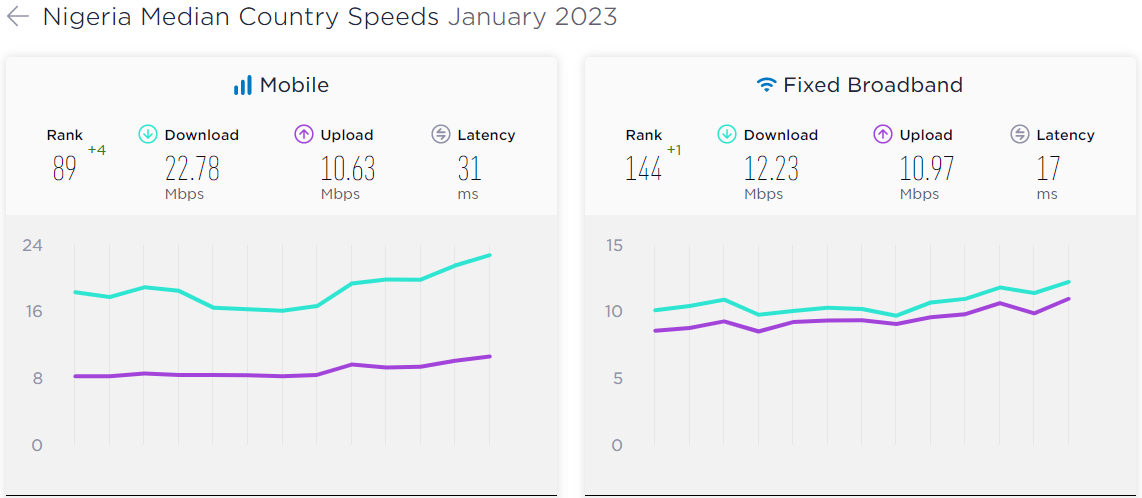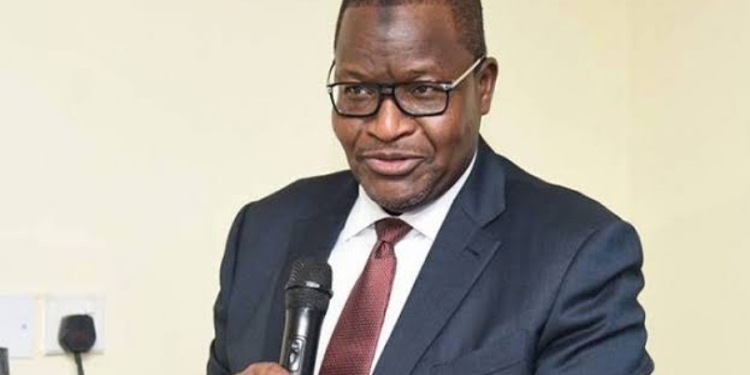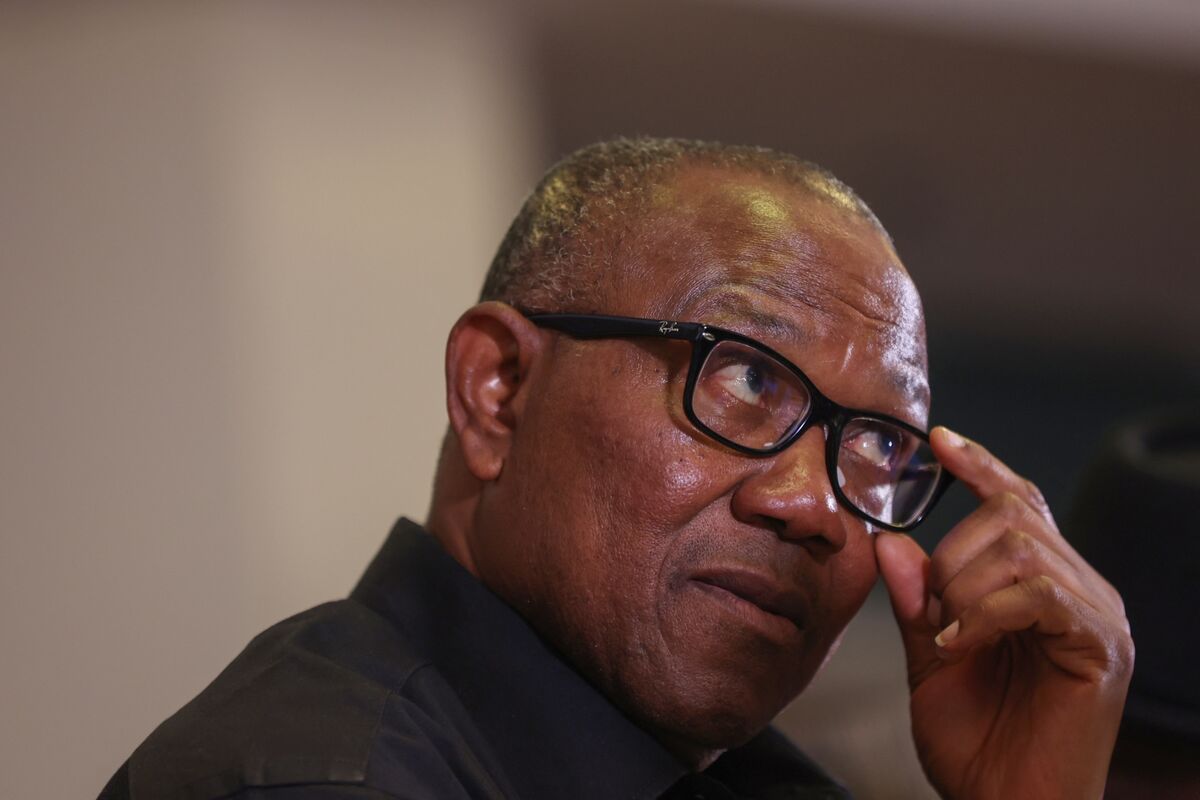Nigeria’s mobile internet speed is slow but not among the slowest in the world, having ranked 89th in the world as of January 2023.
This is according to the latest Speedtest Global Index published by U.S.-based internet speed analysis firm, Ookla.
The Index showed that Nigeria moved 4 places from December last year when it ranked 93 out of 139 countries measured to the current position in January 2023. But compared to January 2022, the country had only moved one place from the 90th position it occupied during that period.
The average mobile download speed in the country increased to 22.78Mbps in January from 21.54Mbps in December last year, while latency remained unchanged at 31ms.
7th in Africa: The global index shows that Nigeria is 7th in Africa in terms of mobile internet speed. The country came far behind South Africa which occupied the first position on the continent as it moved 6 places to become 58th in the world with a 34.71Mbps average download speed.
- Morocco came 2nd in Africa and 63rd in the world with 32.10Mbps download speed, while Togo emerged 3rd and 66th in the world as it recorded a 30.26Mbps average download speed.
- Other African countries ahead of Nigeria include Uganda, 4th in Africa and 75th globally; Mauritius, 5th in Africa and 80th in the world; and Egypt, which emerged 6th in Africa and 86th globally.

Meanwhile, in terms of fixed broadband speed, Nigeria moved only one place in January to emerge 144th in the world out of 179 countries measured. However, subscriptions for fixed broadband in Nigeria are still very low as it accounted for 0.05% of subscriptions in the country as of December 2022, while mobile accounted for 99.84% according to data from the Nigerian Communications Commission (NCC).
Internet speed is expected to improve in Nigeria this year as MTN expanded its 5G coverage, while Airtel is also expected to roll out 5G any time from now. The latest entrant into the Nigerian telecoms market, Mafab Communications also commenced its 5G rollout at the end of January this year.
For fixed broadband, Elon Musk’s Starlink is also changing the game for Nigerians in terms of speed, even though its usage in Nigeria is still currently limited to a few who can afford it.
The Speedtest Global Index: Ookla said the Index compares internet speed data from around the world on a monthly basis and the data comes from the hundreds of millions of tests taken by real people using Speedtest every month.
- Speedtest leverages a vast testing infrastructure with over 10,000 servers in more than 190 countries, ensuring users will always be able to test on a local server regardless of where they are located.
- By having multiple servers in every country and major city, Speedtest ensures an accurate view of performance without requiring long, or even international transit, to perform a test.
- As a result of this testing infrastructure and the enormous number of tests taken using Speedtest, Ookla said it has no need to extrapolate data to fill in gaps because its applications collect information from every imaginable location and every type of device at all hours of the day.




















